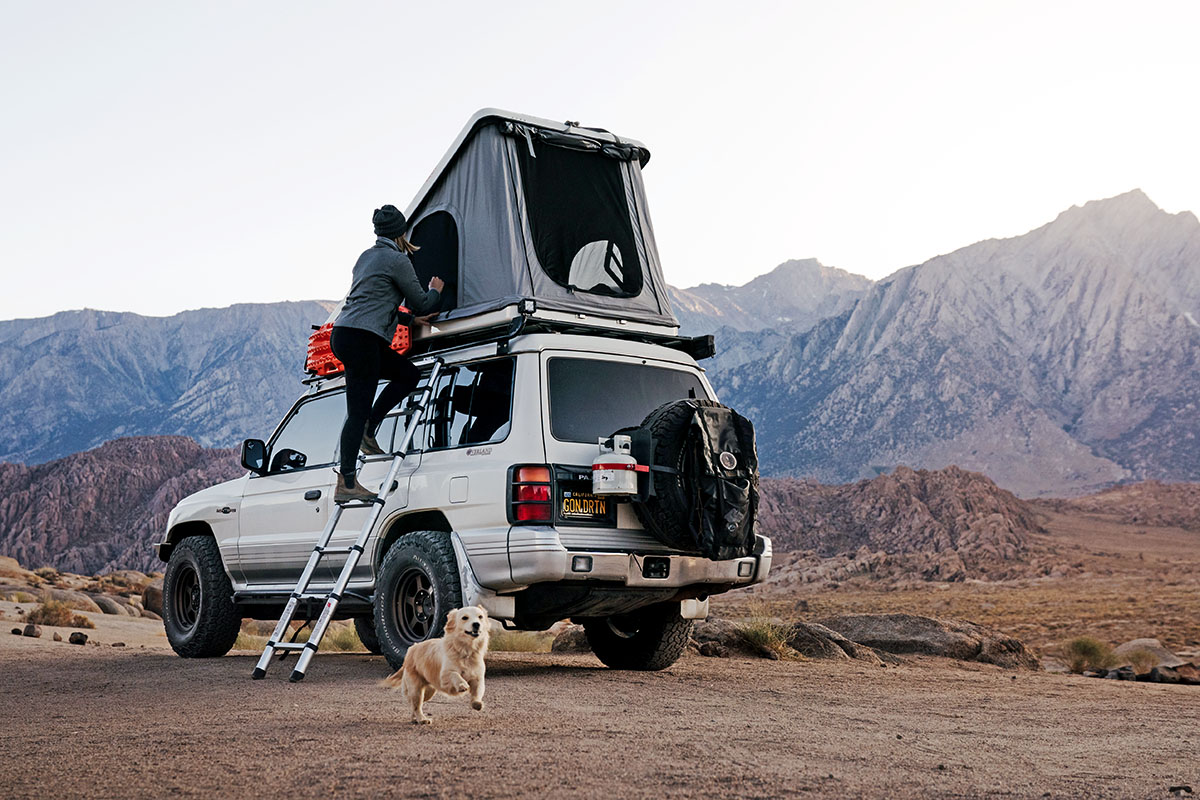
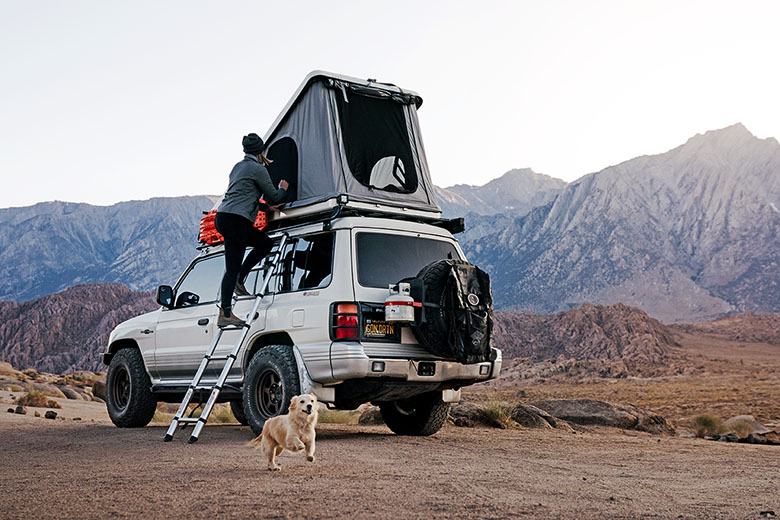
Rooftop tents have come a long way since their dusty beginnings in the wild outback of Africa and Australia. Originally designed for overlanders with rugged off-roading vehicles, they’re now popular among campers and casual weekenders worldwide. And the allure is clear: A rooftop tent gives you a self-contained camping setup for a fraction of the cost of an RV or van. From European legacy brands to trendy startups, below we break down some of the best rooftop tent brands on the market today, including details on their history, popular models, and what sets them apart from the competition. For our top picks, see our article on the best rooftop tents.
Editor's note: This article was updated on June 14, 2024, to correct some outdated company information and ensure all links and product mentions reflect the current offerings at the time of publishing.
Location: Seymour, Connecticut / Malmö, Sweden
Popular models: Explorer Kukenam 3 and Approach
What we like: Widely available, user-friendly, and customizable with a range of accessories.
What we don't: Limited hardshell options and not the most affordable softshells.
Long before they became mainstream among the casual outdoors crowd, rooftop tents were popular among rugged off-road adventurers in areas like Western Europe, South Africa, and Australia. And while a few luxury overseas models managed to make their way across the pond, up until a decade ago, there were no U.S.-based companies making affordable rooftop tents for the masses. Then, in 2010, following a surf trip in Venezuela—a country with a thriving rooftop tent scene—Evan Currid founded Tepui, a company that popularized rooftop tents in the States and simultaneously positioned itself as the go-to brand. Car-accessory giant Thule acquired Tepui in 2018 and has expanded its offerings beyond the Tepui models, but the products and overall quality remain unchanged.
Thule Tepui’s tents are well built and easy to operate, widely available, and reasonably priced—a combination that makes them popular among casual weekenders and first-time rooftop tent buyers. You won’t find ultra-premium hardshells here (for these, we recommend brands like iKamper, Roofnest, and Autohome below), and there are certainly cheaper softshells on the market (check out 23Zero or Smittybilt), but Thule tents are built to last and will get you outside with minimal hassle. What’s more, Thule offers a full range of accessories such as LED light strips, sheet sets, boot bags, and awnings, which is great news for those looking for a one-stop shop.
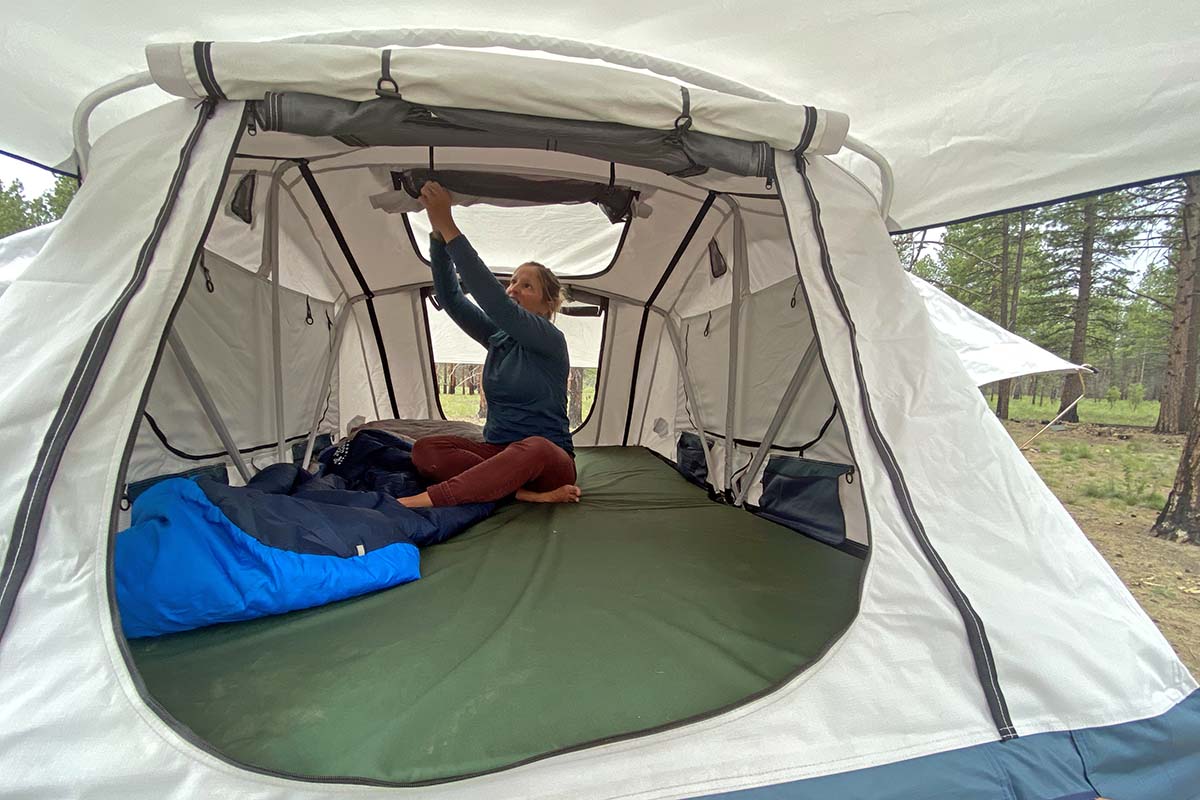
Location: Kent, Washington / Paju, South Korea
Popular models: Skycamp and X-Cover
What we like: Premium, functional hardshells that sleep four; great customer service.
What we don't: Expensive and you’ll have to buy most accessories separately.
iKamper’s name might sound a little gimmicky, but this company designs some of the most functional and well-rounded hardshells on the market. Founded by entrepreneur Soon Park following his family’s multi-year road trip in the U.S. (and brought to life by a wildly successful Kickstarter campaign), iKamper’s aim was to create a hardshell that sleeps four, which is big news for families with kids. Though superior to softshell tents in terms of durability and weather protection, hardshells are typically limited to just two sleepers due to their smaller floorplans (for more information, see our rooftop tent buying advice). But with an innovative fold-out design, iKamper expanded upon hardshells (literally) and has since become a respected name in the world of premium rooftop tents. While iKamper still focuses on hardshells, they now offer a softshell/hardshell hybrid, the X-Cover 3.0.
The combination of quality, convenience, and versatility that iKamper brings to the market is hard to beat. These tents set up quickly, have a top-of-the-line fit and finish, and come backed by great customer service. In fact, when one of our testers had a ladder break, iKamper express-shipped her a replacement and even included a free awning to compensate for the inconvenience. But you can expect to pay a pretty penny—the Skycamp 3.0 will set you back a staggering $4,199—and unlike many brands, iKamper doesn’t include accessories like a shoe bag or LED lights with purchase. But iKamper tents have stormed the market for good reason and are great investments for those who get outside often.
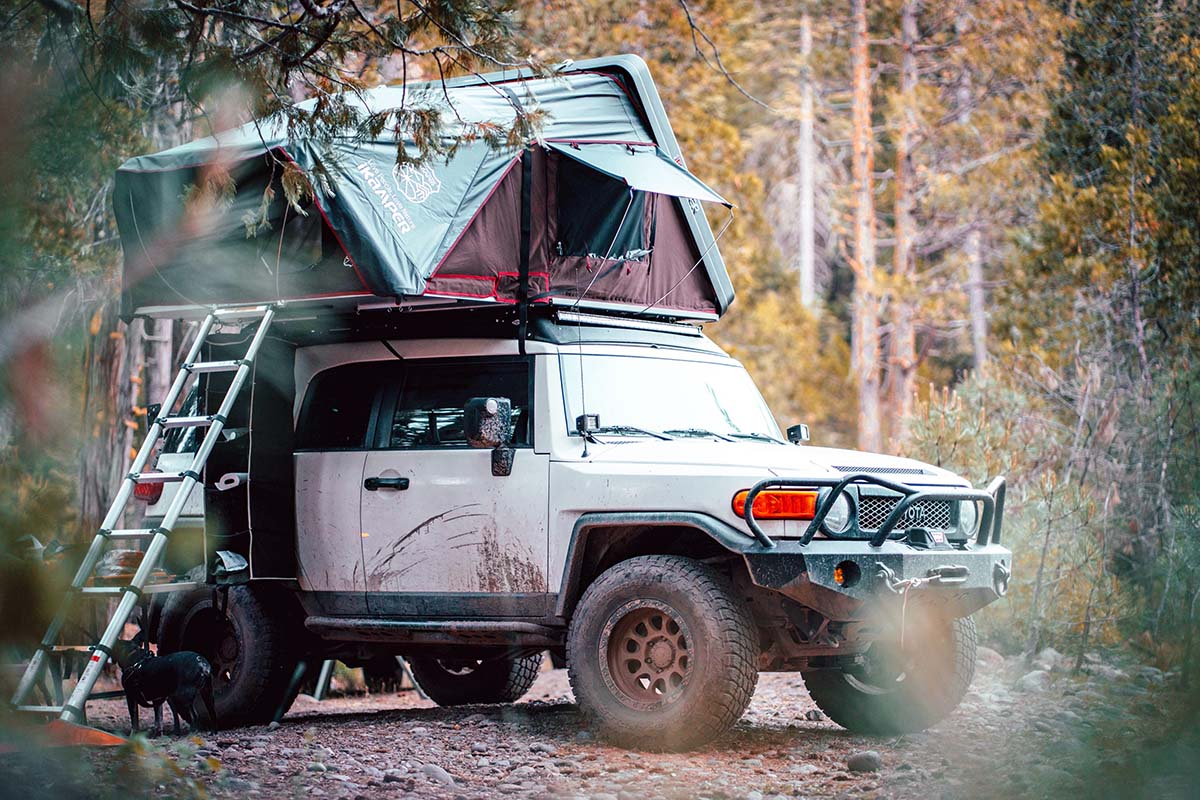
Location: Boulder, Colorado
Popular models: Sparrow and Condor
What we like: More affordable than iKamper and a great lineup of options.
What we don't: Online-only shopping means you can’t try before you buy.
Founded in Boulder, Colorado, in 2016, Roofnest was the first American company to bring pop-up and clamshell-style tents to the States, building off of the worldwide success of well-established international specialists like Autohome (Italy) and James Baroud (Portugal). Since then, their quality has improved immensely, and the brand now offers top-notch shelters that rival the likes of iKamper above. And importantly, by cutting out the middleman (Roofnest sells direct to consumer) and minimizing customization, they’ve been able to keep prices comparatively low. Unfortunately, this means you can’t “try” before you buy, but Roofnest offers walk-through videos that provide a realistic survey of each tent.
Roofnest’s lineup is comprised of four main models—the Falcon, Sparrow, Meadowlark, and Condor—all of which are well built, come with a plush mattress, and set up easily with gas-powered struts. The Falcon clamshell line prioritizes functional durability and aerodynamics, with a 6.5-inch packed height and tough aluminum shell that accommodates accessory crossbars for your gear. The Sparrow comes in both pop-top and clamshell versions and is Roofnest’s all-rounder: affordable, a breeze to set up (you can store your bedding and ladder inside), and compatible with external storage. The Meadowlark line is Roofnest's most compact tent, defined by its softshell design that doesn't require any guylines or poles and weighs only 90 pounds. Finally, the Condor tents resemble the design of iKamper’s Skycamp 3.0 but fold up even smaller and retail for considerably less (plus, Roofnest includes accessories with purchase). For weekenders and overlanders alike, Roofnest makes some fantastic rooftop tents and is certainly a name to have on your radar.
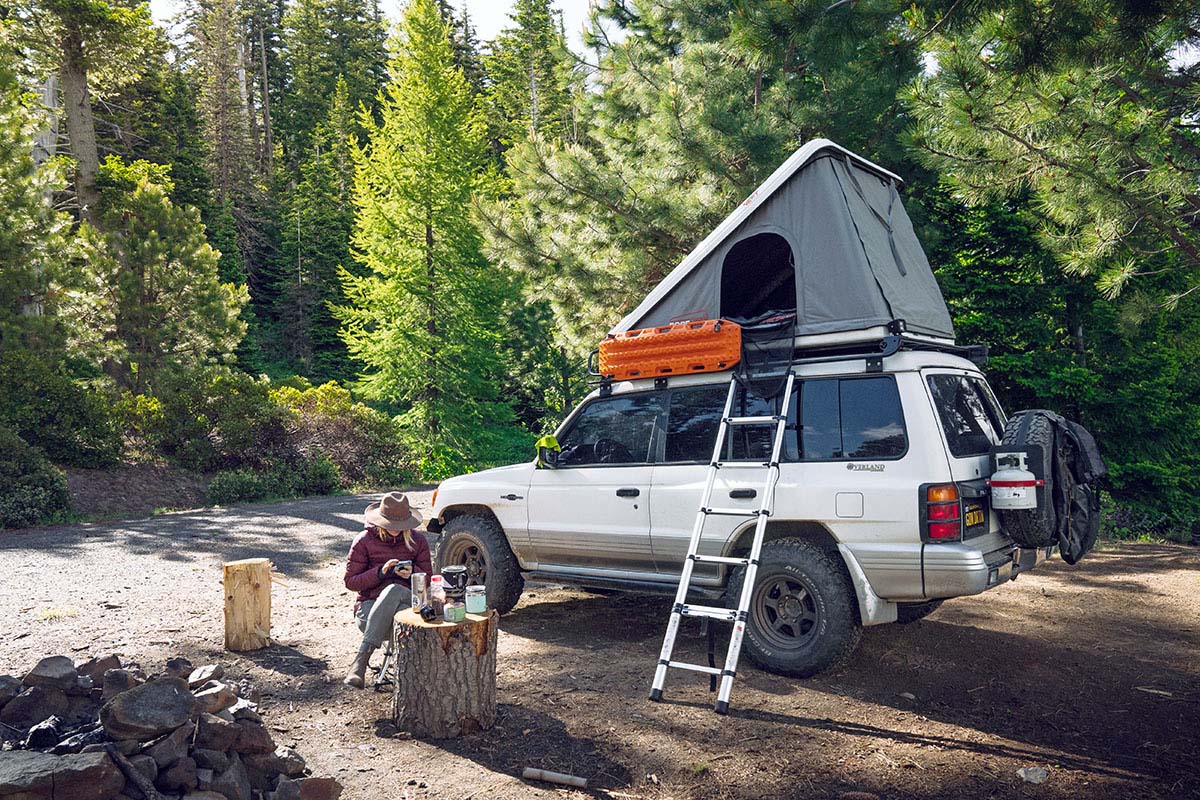
Location: Nashville, Tennessee
Popular models: Pioneer and Mt. Hood
What we like: Very competitive prices, free shipping in the Lower 48, and financing available.
What we don't: Much more limited selection since being acquired by Gathr Outdoors.
Cascadia Vehicle Tents (CVT) was founded in Bend, Oregon, in 2010 by Bobby Culpepper and Jamie Rose and quickly rose to be an industry leader in the world of RTTs. CVT eventually sold to Gathr Outdoors in January of 2022, the parent company of other well-known brands such as Klymit and GCI Outdoor. The acquisition seems to have allowed CVT to sell at much more competitive prices and offer free shipping within the Lower 48 (shipping used to be quite pricey), but the available tent models also appear to be stripped back, at least at the time of publishing. That said, they still offer the major players we've come to love, namely the “ultralight” Pioneer (98 lb. for a size small), as well as the hardshell (and much heavier) Mt. Hood.
CVT used to have showrooms in Bend, Chattanooga, and Las Vegas, but all of them have been shut down. This means you'll have to navigate the world of online shopping, which can be nerve-wracking with such a huge (literally) purchase. This shouldn’t deter too many modern consumers, but there’s a lot of value in seeing a tent in person before making a purchase. Additionally, CVT used to offer a cool rent-to-own program where you could apply 50% of your rental total toward a purchase—as far as we can tell, this is also a thing of the past in lieu of a more traditional financing option. Still, all signs point to quality remaining high, and with much more approachable price points, CVT is an option worth seriously considering. It will be interesting to see where things go from here: Culpepper remains the company president and has stated that the partnership with Gathr will help them to "reach new heights." We'll be paying attention and report back if their lineup expands.
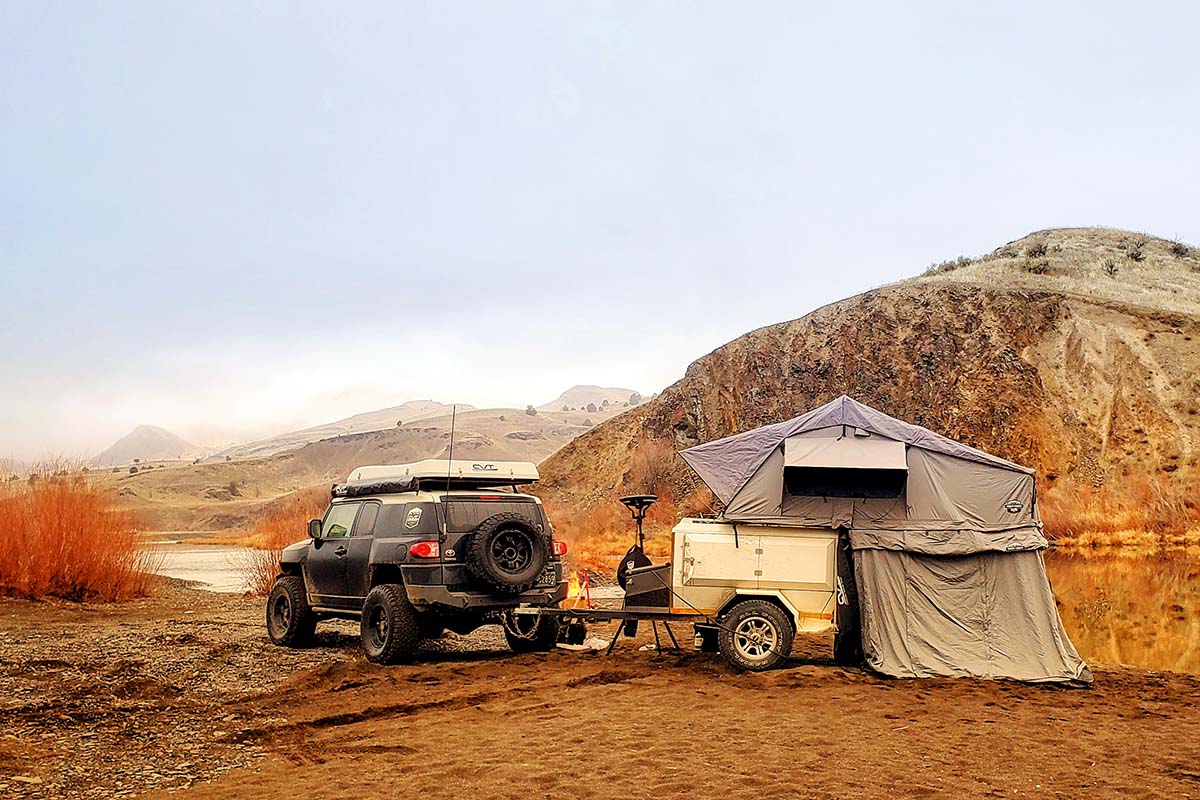
Location: West Valley City, Utah / Clayton South, Victoria, Australia
Popular models: Walkabout and Kabari
What we like: High-quality, reasonably priced, and lots of options.
What we don't: Utilitarian looks appeal to overlanders more than recreational campers.
23Zero’s tents might not be the most flashy or attractive, but these rugged models are some of the most functional on the market for overlanding use. With one foot in Australia and the other in Utah, 23Zero knows the ins and outs of demanding desert roads better than most, and their tents have the feature sets to prove it. As an example, most models are made with the brand’s innovative Light Suppression Technology for better protection against the relentless desert sun and heat. On top of that, 23Zero tents represents a great value, with durable materials and user-friendly designs that often undercut top competitors.
The biggest downside here is convenience: These tents are only available through 23Zero’s website and a number of specialty dealers throughout the U.S., and shipping is pricey at $280 for ground and $349 if you need a lift gate (required if you don't have a forklift). That said, if you're near Salt Lake City, you can pick up for free, and 23Zero offers great customer service. And in terms of options, the company sells two softshell models and two hardshells in a number of capacities, as well as annexes and accessories. For softshells, the Breezeway offers great airflow and easy set-up, and the Walkabout provides 4-season comfort in a durable package. The hardshell models are newer and include the Kabari and Armadillo. If your backcountry adventures often involve getting far off the beaten path, then 23Zero should be on your short list.
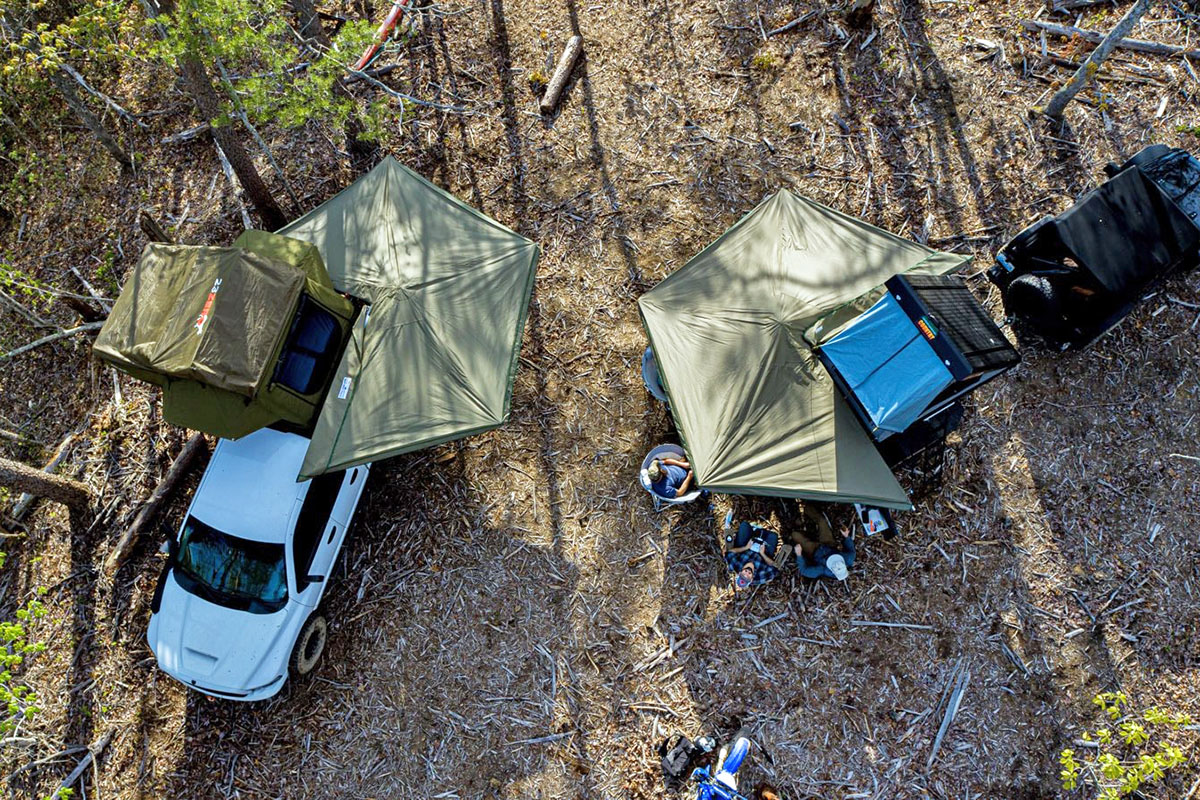
Location: Porto, Portugal
Popular models: Evasion and Discovery
What we like: La crème de la crème: rugged, comfortable, and easy to set up.
What we don't: Extremely pricey.
If you’re searching for the Mercedes Benz of rooftop tents, look no further than James Baroud. This company offers some of the highest-quality hardshells on the market, as well as one softshell, all backed by a reliable and generous warranty (three years for all products with the option to extend to five years upon registration). Their most popular models are of the pop-up and clamshell variety, all of which feature a hydraulic-strut opening (set-up can be done in a matter of seconds, not minutes); creature comforts like a solar-powered fan complete with a dust filter; and a 3-inch-thick, high-density foam mattress. And while James Baroud is based in Portugal, they distribute in the U.S. through companies like Main Line Overland and Rhino Adventure Gear (both online and in-store).
Not only are James Baroud tents practically synonymous with the term “glamping” (glamorous camping), but they’re also built to withstand the true rigors of overlanding, including ceaseless jarring on bumpy roads and extreme sun, wind, and rain (they’re tested in winds up to 60mph). These tents have been hauled everywhere from the Utah desert to the grueling Dakar Rally, and there’s no denying the street cred that comes with having one on top of your vehicle. But you do pay a serious premium for this level of craftsmanship, and in our opinion, upstarts like iKamper and Roofnest are hot on James Baroud’s heels when it comes to quality, durability, and ease of use.
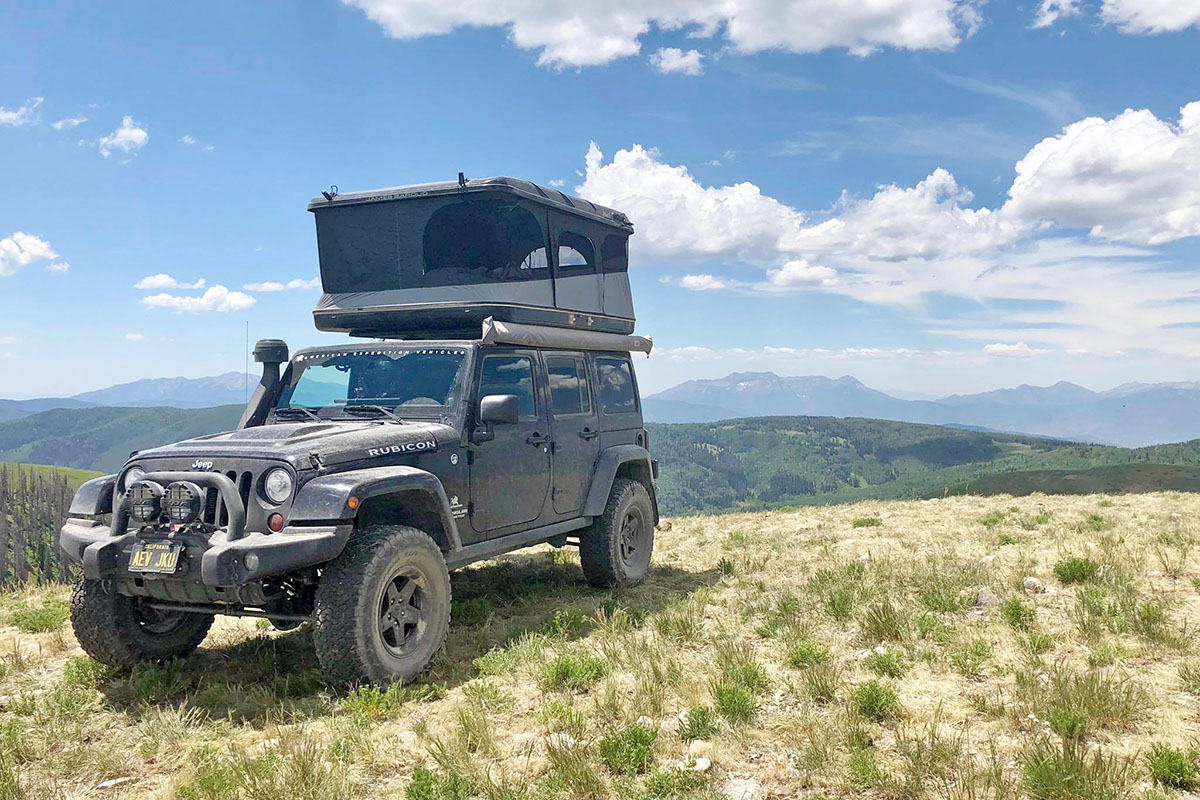
Location: Montovano, Italy
Popular models: Maggiolina Airlander Plus and Columbus Variant
What we like: Great legacy brand that specializes in simplicity and durability.
What we don't: Not the best value.
Unlike more modern brands like Roofnest and iKamper, aptly named Autohome is not a newcomer to the rooftop tent scene. In fact, this Italian company—distributed in the U.S. by Autohome USA—claims to have built the world’s first rooftop tent back in 1958. Today, they offer three styles of hardshells—the Airtop, Columbus, and Maggiolina—that come in a range of lengths and widths to fit two to four sleepers. All in all, these tents are time-tested, weather-ready, and look good to boot. And what we like most about Autohome’s offerings is their functional simplicity: All come with plush mattresses and aerodynamic builds, and the popular Maggiolina even goes old-school with a reliable hand crank for set-up.
All that said, many modern brands have surpassed Autohome in both quality and value. For comparison, Boulder-based Roofnest doesn’t have the same longstanding reputation, but their tents are similar in style and overall construction, have doors and windows that close all the way (Autohome’s are flaps that zip closed only along the sides), and cost considerably less when compared like for like. And the real clincher for us is shipping: While Autohome charges between $600 and $1,100 for shipping (yes, you read that right) depending on where in the U.S. you are located and which size model you get, Roofnest offers free shipping to the Lower 48.
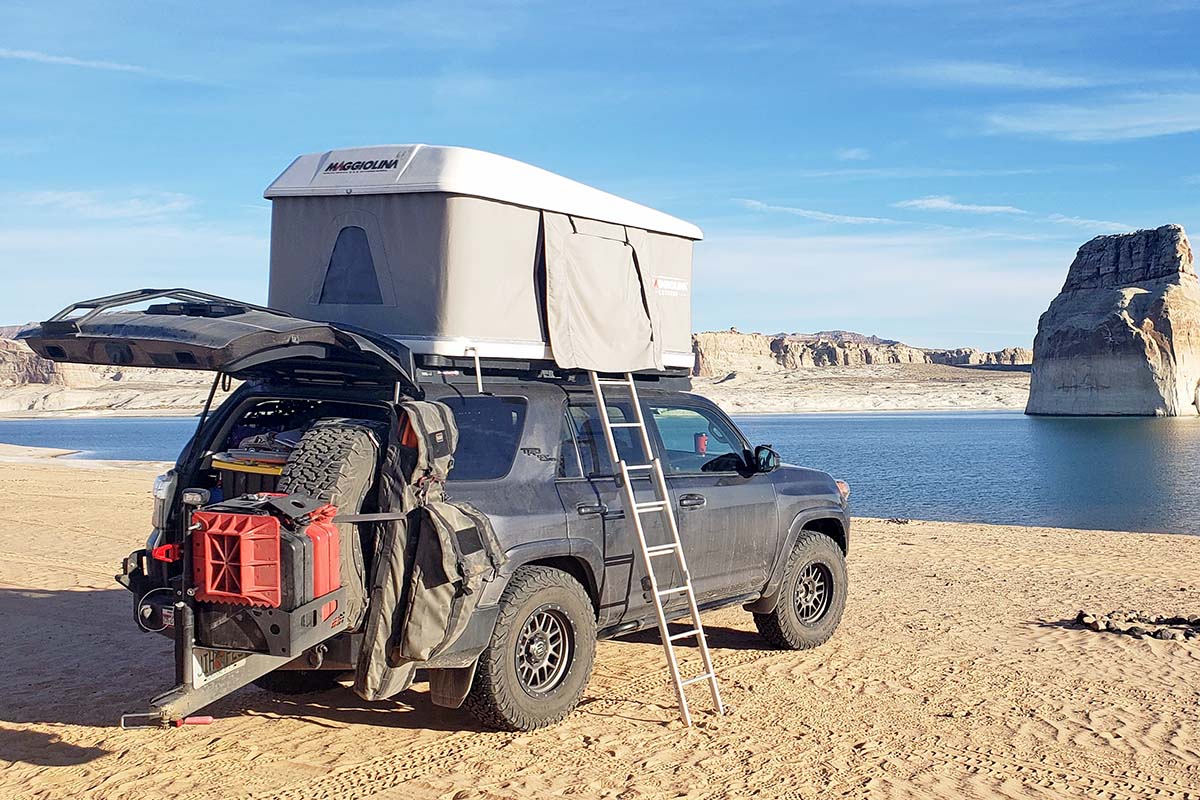
Location: Ontario, California
Popular models: Ranger and Alpha
What we like: Easy to purchase your full setup in one fell swoop.
What we don't: Lacks the premium fit and finish of the more expensive models here.
Most of the brands above are rooftop tent specialists, but California-based Tuff Stuff stands out as one of the few generalists here, selling extras like racks and air compressors. With that in mind, it comes as little surprise that Tuff Stuff’s tents are geared towards the overlanding crowd, which means an emphasis on function over form, durable materials, and relatively low price points. You don’t get the sleek and classy look of a James Baroud or Autohome, but Tuff Stuff’s tents are reasonably well made and cost about half as much as similar models from those brands—that’s a lot of bang for your buck.
All in all, we consider Tuff Stuff a nice alternative for buyers who place a premium on convenience and savings over looks. Shipping is included in the price of all Tuff Stuff tents, and their website makes it easy to tack on a compatible awning or annex. And as a major bonus, Tuff Stuff also offers a plethora of rooftop camping accessories, from flushable outdoor toilets to refrigerators, shower tents, and more. Overall, their tent inventory offers some diverse options, and for overlanders and those on a budget, Tuff Stuff is a great brand to have on your radar.
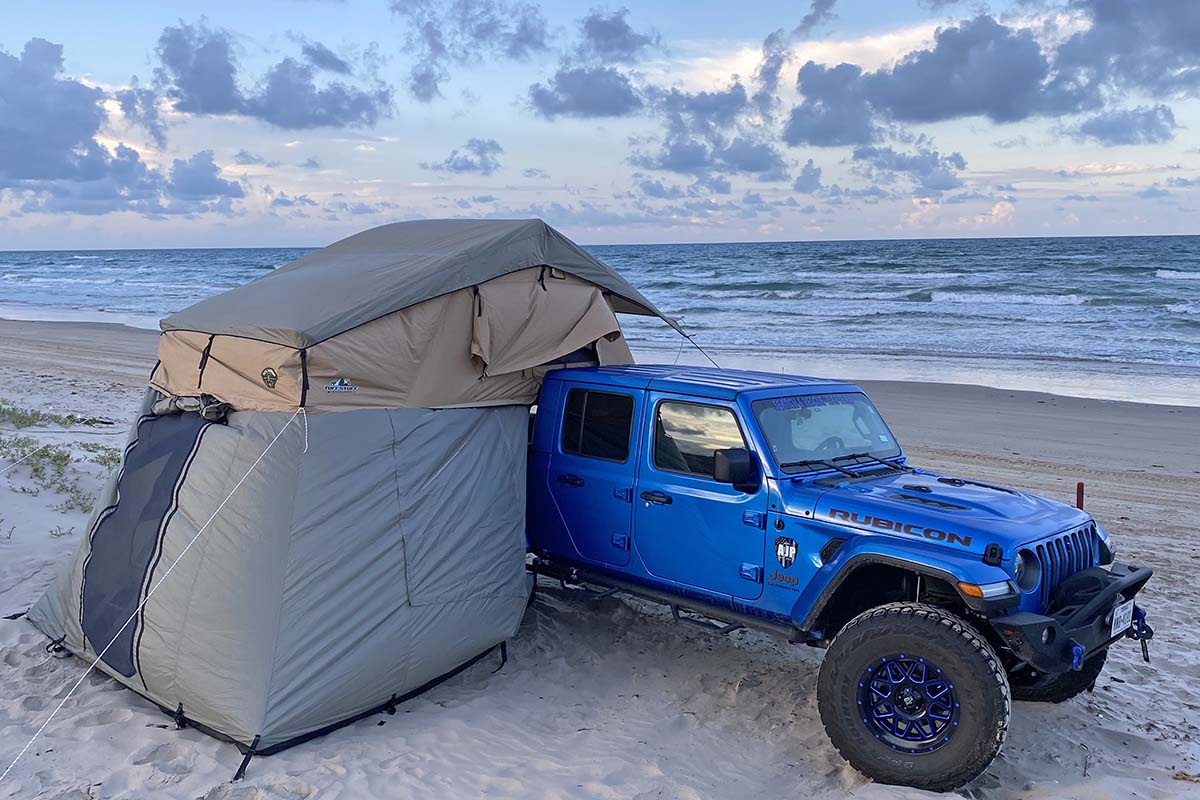
Location: Compton, California
Popular model: Gen2 Overlander
What we like: Excellent value and great overlanding appeal.
What we don't: Not the most durable or good-looking tents.
Like Tuff Stuff, Smittybilt specializes in truck and Jeep accessories and is well known in the off-roading community. In other words, they’re a far cry from trendy newcomers like iKamper and Roofnest. But what they lack in looks, they make up for in value and functionality. The Overlander is a case in point: It's one of the most popular “budget” models available—the Gen1 retails for just $1,326 but is consistently sold for less on Amazon, and the Gen2 is only about $100 more for the standard size. The tents come with features like LED strip lights and telescoping ladders and are built to last with a 600-denier polyester shell and sturdy metal components. Overall, we consider this a nice option for those looking to dip their toes into rooftop camping without breaking the bank.
Although sold mainly through overlanding websites and Amazon, Smittybilt offers great customer service and a reliable warranty. Again, you miss out on the flashiness and photo-worthy good looks of models from some of the more modern alternatives above, but the advantage in savings is worth that trade-off for many. And for overlanders looking for more options in this category, we recommend checking out brands like ARB and Front Runner as well.
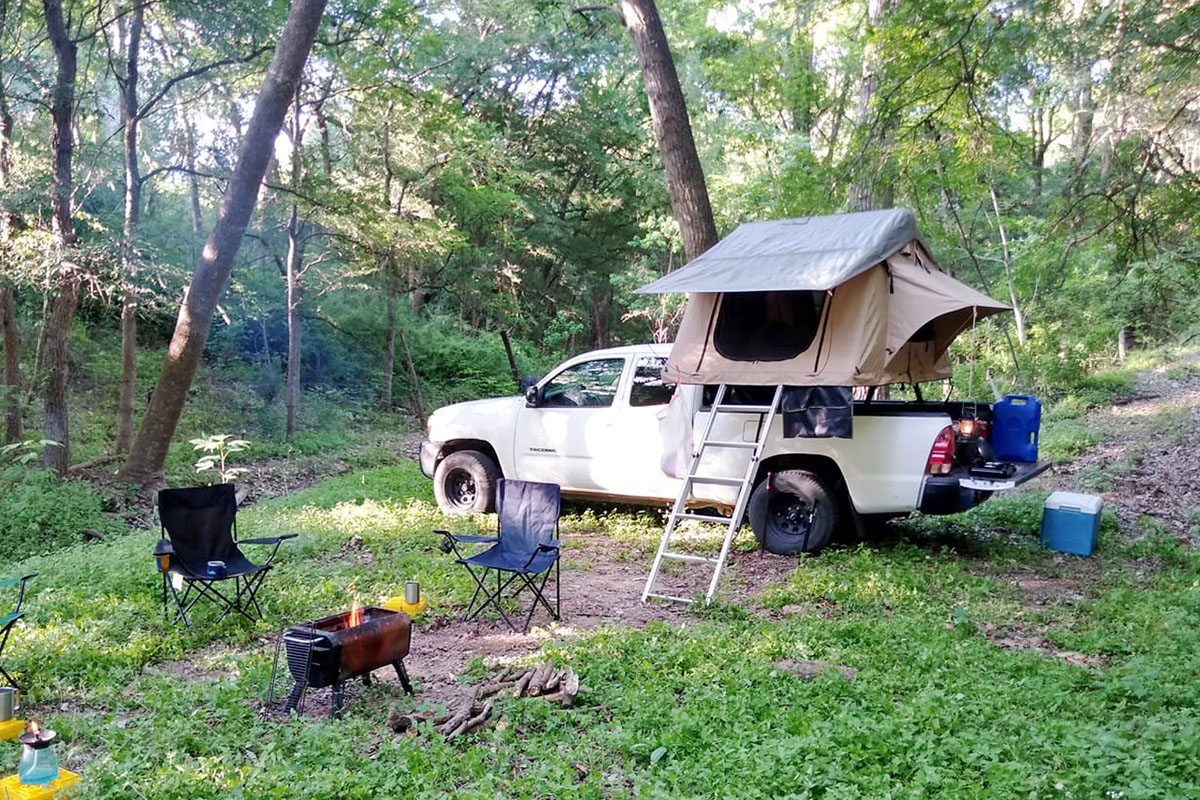
Location: Lake Oswego, Oregon
Popular model: SkyRise
What we like: Decently priced and generally available at REI Co-op.
What we don't: Limited offerings and only softshells models.
Like Thule above, Yakima has made a name for themselves when it comes to car accessories and storage. From racks to cargo boxes to crossbars, if you have camping gear or adventure toys that you want to transport, Yakima has you covered—typically at a fraction of what Thule products cost. They don't have nearly the selection of rooftops tents as many of the other brands here—only the SkyRise line at the time of publishing—nor do they make any hardshell models, but the SkyRise has proven itself over the years. We also love that it's available at REI, making returns or any other issues that much easier, not to mention the sweet dividend kickback you'll receive if you're a member (10% on full-price items).
The SkyRise tents set up easily, are decently lightweight, and are notably well crafted, but they are a bit more basic than many of the other options here. We also wish that Yakima would release a few more RTT options, but as we noted above, the SkyRise is very popular and has proven dependable. The other nice thing about buying from a company like Yakima is the ease with which you'll be able to add other accessories and items within the line. The Yakima website allows you to add your vehicle up front, so everything you look at from there will clearly indicate whether or not it's compatible with your rig.
There's no denying it: The world of rooftop tents has seen a massive surge in popularity just in the last few years. As a result, manufacturers are popping up all over the place, and it can be overwhelming to wade through the options. We took care in curating the list above, focusing on some of the most established, well-rounded, and readily available (in the U.S.) brands, but our picks represent just a fraction of the market. You can also find rooftop tents through other 4x4 accessory manufacturers (including ARB and Alu-Cab); high-end cottage brands like Freespirit Recreation, Treeline Outdoors, Roam, and Go Fast Campers (GFC); and a plethora of companies out of Australia and South Africa (Bundutop, Eezi-Awn, The Bush Company, and countless others). If you're new to the scene, the brands listed above are the ones we have more direct experience and knowledge of, but we're always refining this list as we learn more.
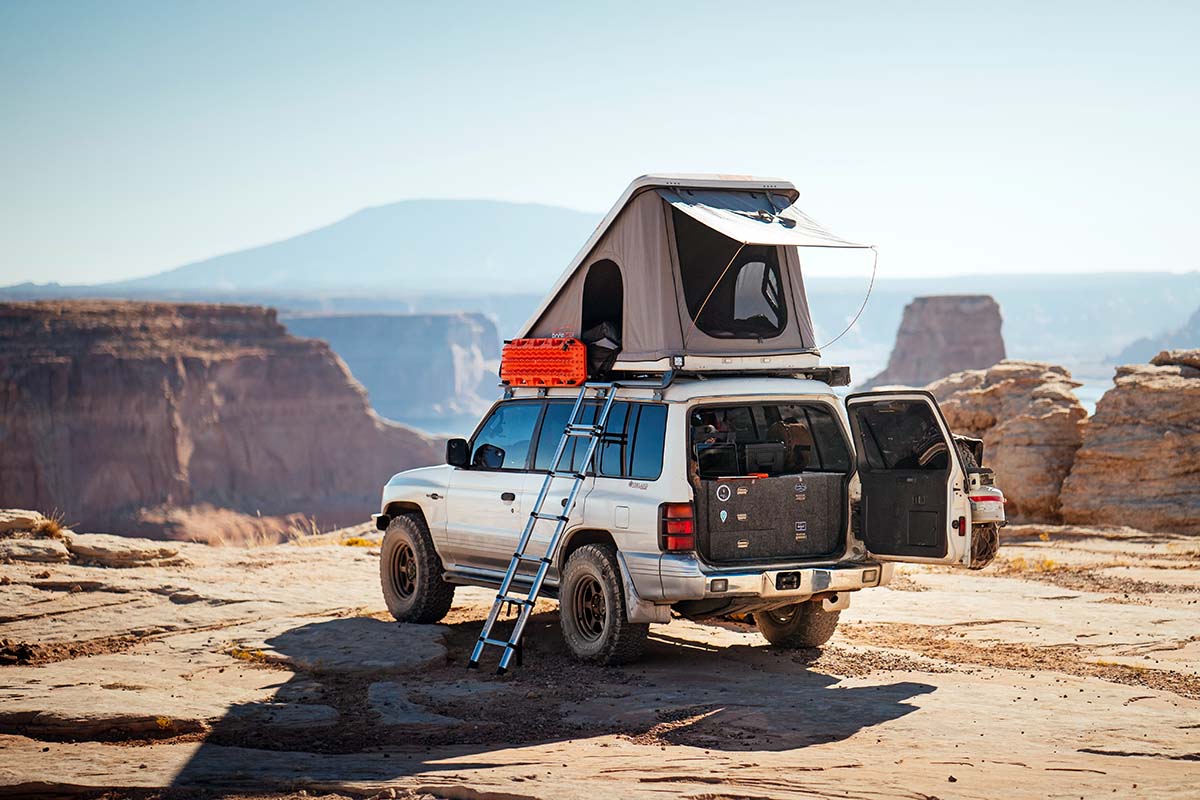
Many consumers will understandably want to purchase a rooftop tent in person: Shipping is expensive, it’s nice to try before you buy (especially given the steep investment), and vehicle accessory shops often offer help with installation. The good news is that many rooftop tents can be found in stores. Models from Thule, Yakima, and iKamper, for example, are sold at REI Co-op’s brick and mortar locations (availability can vary), and off-road and vehicle accessory shops often carry brands like Autohome and CVT.
That said, shopping online can be a convenient alternative if you already have a tent in mind or if stores don’t carry the brand you’re looking for. Again, we like shopping through REI Co-op’s website—their generous return policy, free ship-to-store pickup option, and member sales are great benefits—and Backcountry carries a pretty impressive selection as well. If you’re looking for an overlanding-specific model, many are sold on specialty websites like Rack Attack, Off Road Tents, and 4 Wheel Parts, and even Amazon carries some notable brands. Finally, there are direct-to-consumer companies that manage to keep prices reasonably low by selling only through their own site. Good luck in your research and happy camping!
Back to Our Rooftop Tent Brands See Our Camping Gear Reviews